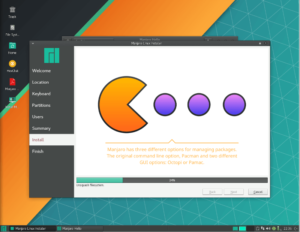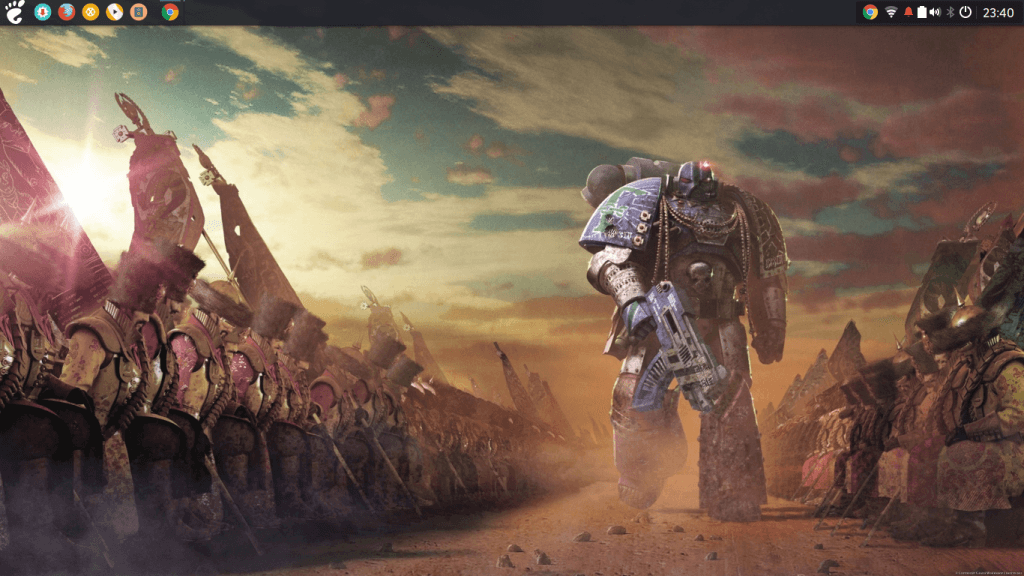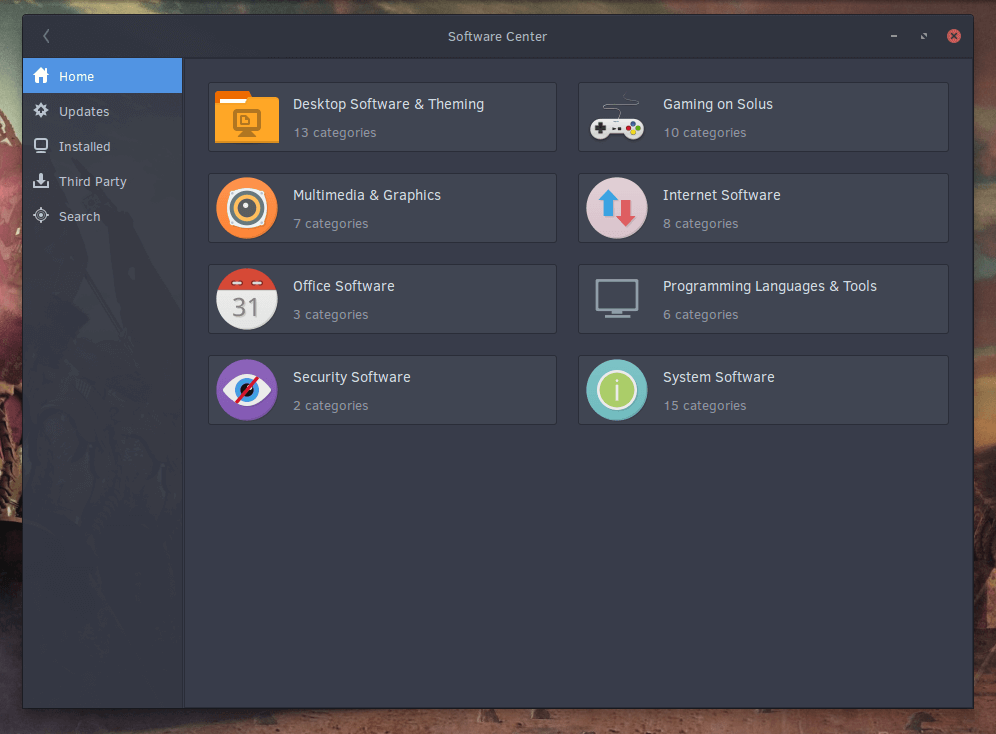Solus Stands on Its Own

If I had to pick one operating system of the year, I would be picking Ubuntu MATE 16.04, if Solus hadn’t come along and stolen the title.
If it was a contest (and let’s admit it; it is.) this would be nothing short of a gripping and dramatic victory for Solus’ lead developer Ikey Doherty and team, especially in this new generation of proven and truly great Linux systems. If it wasn’t for the fact that the Linux community at-large was full of such amazing and cooperative people, I would call it a distro war.
Now, before I get called out for trying to “sensationalize”, let’s get something straight. In recent weeks I have heard the words “competition” and “competitors” used more in the interchange of “fellow developers of other distros” than I have ever heard in my years of involvement with open source.
And I’m proud to say that I welcome it with open arms. Nothing makes you better than someone trying to outdo you. At the moment, no one is trying to outdo you like Team Solus, so you’d better eat your Wheaties.

They’ve Been Win-ning!
If you’ve used Solus at all in the past couple of months you’ve probably noticed a deluge of changes and bug fixes. I feel as though I’ve been watching a day and night construction of the Winchester House; only this time it’s not out of fear of ghosts and the stairs being added actually lead somewhere.
It’s been an amazing (and sometimes startling) experience. Anyone who read my initial Solus review will probably remember my misadventure with Wine, where I was trying to get a Windows MUD client to load. My reaction was genuine. I was writing in real time. One minute I was testing the client in Solus and it wasn’t working. A few minutes later I tried it again, using the same method as before and it worked. I was able to play Aardwolf on Solus and it was like getting a present. Is there a Betty Ford for MUDs, by the way?
Many, many improvements have occurred since those heady days of development by Ikey and the gang. Most recently, with the 1.2.0.5 release, some of the tightening up includes a fix for a slightly annoying battery icon refresh issue and some keyboard region “guess” issues.
They also switched over to Gnome screensaver for screen locking and for better power management. Somewhat infamous installation issues for the Nvidia Maxwell cards as well as the Intel Skylake chip series were addressed. Gnome technology stacks for 3.20 were added as well as Ikey’s favorite PulseAudio 9, Mesa 12, GCC 6.1.0 and glibc 2.2.4.
If you’ve ever been curious but afraid to try installing it yourself, Solus saved you the trouble of installing the latest Linux kernel, 4.7.2. So far my experience has been really terrific and I’ve not run into any issues in these regards.
I’ve Got to Run, Run Like the Wind…
I like an OS that doesn’t mess around and Solus definitely gets to the point and sings in the startup and shutdown departments. Even on my recently modified Acer Chromebook 15 with SeaBIOS it boots up in 13 seconds. You read that right. Even with Numix icons installed and having to select Solus on GRUB. There’s even an optimistic little “Doong-doong-doong!!” chime once the desktop appears Shutdown? Four. That’s applause-worthy.
Apps start up very quickly, with even Google Chrome beating the clock. So even on low-spec systems, you can really sense the drive for a great desktop experience. It’s light, but pretty. It’s fast but doesn’t skimp. It’s easy; even if you’re the laziest desktop user on the planet you can get what you need without having to go spearfishing on the Internet.

Beavis Installs Packages
In the Solus repo, you’ve got a slew of new packages ready to go whenever you want them. In fact, 41 were introduced, however many of those fulfill several software dependencies for installing others. However, those are easy to spot since they use a “brown postal wrapper” icon. Another thoughtful touch is Solus’s way of understanding that you’re pretty busy and don’t have time to look through all your …
